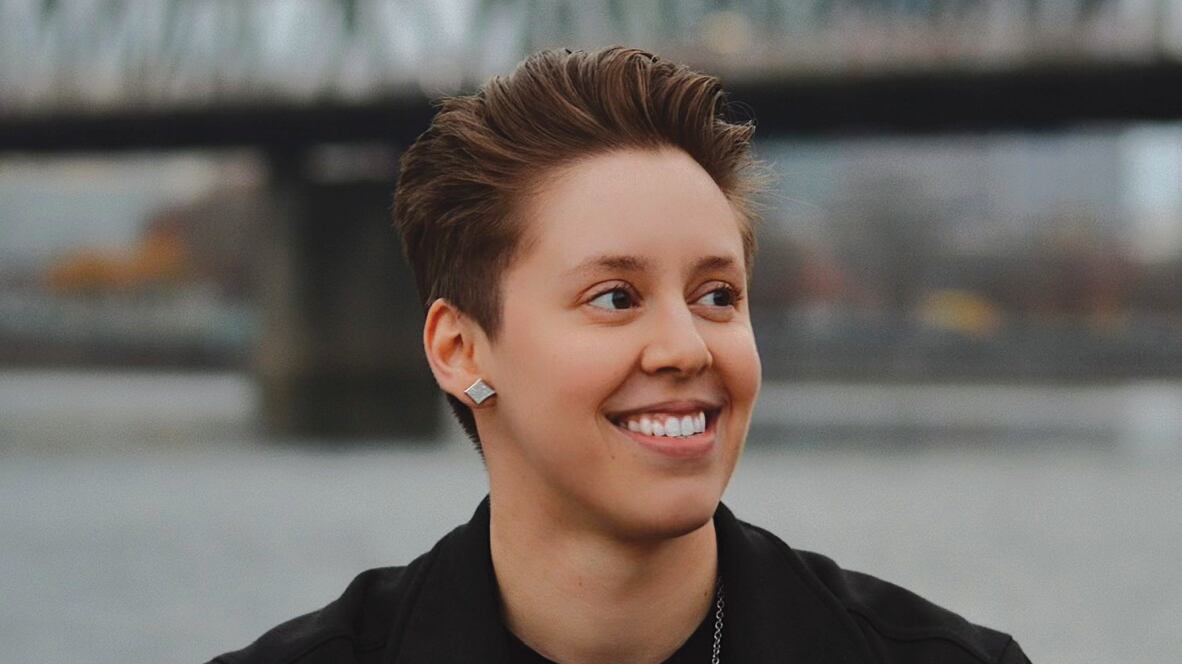Since Oregon legalized recreational cannabis in 2015, more than 200 medical marijuana dispensaries have either shuttered or transitioned to the recreational model. And that transition created a gap.
Cannalign ECS Optimization, a Portland cannabis consulting service, saw medicinal users being left behind, without spaces where they could discuss clinical matters with trained professionals.
Not to be confused with the California marketing company CannAlign, the small, new consulting business—which operates out of the Cannabis Curb dispensary on Northeast Martin Luther King Jr. Boulevard—is designed to pair those curious about canna therapy with treatment recommendations divorced from retail concerns.
“There are a lot of distractions that take place in a retail setting, as opposed to a setting that’s specifically set up for the consultation,” Cannalign wellness expert Skylar Tschirhart says.
Compared to the brightly lit dispensary lobby, it’s easy to understand how Cannalign’s essential oil-scented office would present a preferable atmosphere to discuss chronic illness, sexual dysfunction, a disability or even a terminal diagnosis.
WW caught up with Tschirhart to discuss Cannalign’s consultation model, the limitations of retail budtenders, and how a therapeutic setting might legitimize weed for the masses.
WW: What service does Cannalign provide beyond budtending-style weed recommendations?
Skylar Tschirhart: Dispensaries are very much a retail setting. Sensitive conversations like, for instance, medicating a low sex drive, aren’t necessarily things that people want to talk about with a budtender in the open. Maybe there’s somebody waiting in line behind you.
Plus, a lot of information out there just isn’t very digestible. There’s a multitude of different effects that a person can experience with cannabis, and each endocannabinoid system is different. I like to think of myself as a matchmaker, finding the ideal cannabis cultivar, dosing and absorption for a particular person.
Cannabis can be a solution, because it’s not always the answer. I’m a firm believer in being able to refer people. I’m not selling something to somebody. I’m providing them with information.
How does a Cannalign consultation work?
They’re usually anywhere from an hour to 90 minutes. When people sit down, they often feel like it’s the time to share. We might talk about how they’ve tried to use cannabis in the past or what they know about cannabis.
We talk about what their goals are and how cannabis might or might not be a solution for what they’re trying to achieve. They’re talking to a real person who’s passionate about the plant and the science behind it.
Do you offer remote appointments?
I’ve helped people over Zoom, but I do definitely notice a difference in the level of conversation when somebody actually comes and sits down. Since we are located in a dispensary—and for the record, we’re a separate business from Cannabis Curb—clients have the option to leave with something and try it, then come back and talk about how well it works or follow up with a phone call.
How much do cannabis consultations cost?
Since we’re a brand-new company, consultations are complimentary until the end of the year. My whole motivation is just that it’s incredibly fulfilling to provide people with a service like this.
I’m a firm believer in cannabis’s ability to provide well-being and health. So being able to talk about it in a therapeutic way, legitimizes the plant and helps further medical research. Whether or not dispensaries adopt this idea of having a private office in an intimate setting, I’m all for anything that’s going to legitimize cannabis use.
What’s your cannabis background?
I started off as a budtender, so that’s where a lot of my experience comes from. I’ve been using cannabis for a long time, and I also have a master’s from Cannabis Training University.
I do a ton of studies on cannabis, as well as researching it and working with the National Institutes of Health. I obviously want our clients to follow whatever doctor recommendation that they have, but I personally have been able to wean off of all prescription medications due to cannabis. I wouldn’t have been able to do that if the research out there didn’t exist. I needed to be guided in that way. That’s very much what inspired my journey to dive deeper into cannabis and its therapeutic benefits—how successful it was in my own life.
Considering how often new discoveries in cannabis are made, how are you consistently developing Cannalign’s knowledge base?
Through an aggregation of tons of studies, anecdotal research, and experience working with different patients. It’s a lot of trial and error, but that’s why the consultation exists in the first place, because there isn’t a one-for-all solution. Seeing this terpene in combination with that secondary cannabinoid really help this person, recommending that, and depending on what’s going on, taking it from there and seeing how it works. Data collection is all anonymous. So it’s very much based anecdotally, aside from the fact that we’re constantly referencing scientific studies as they come out.
GO: Cannalign ECS Optimization operates inside Cannabis Curb, 4069 NE Martin Luther King Jr. Blvd., 503-420-8602, cannalignpdx.com.
